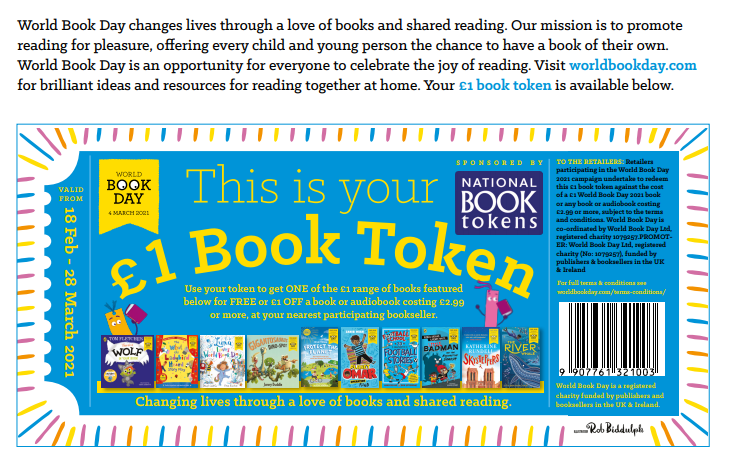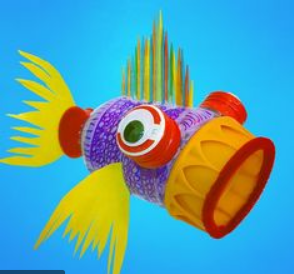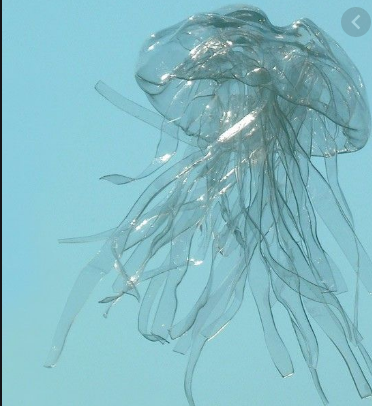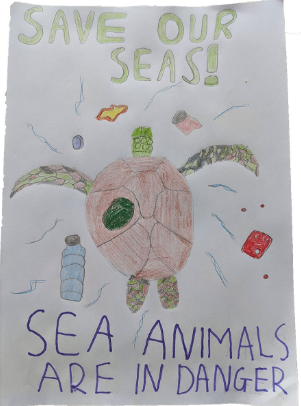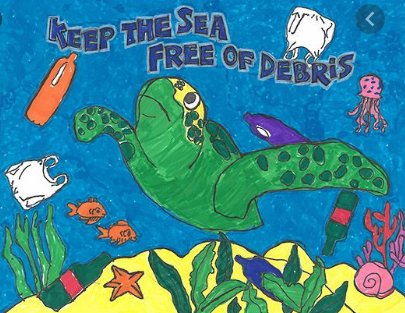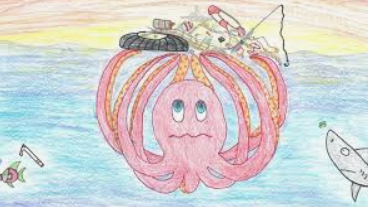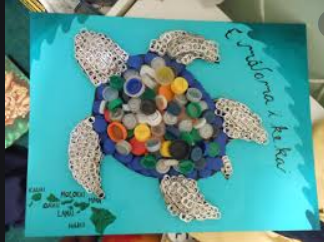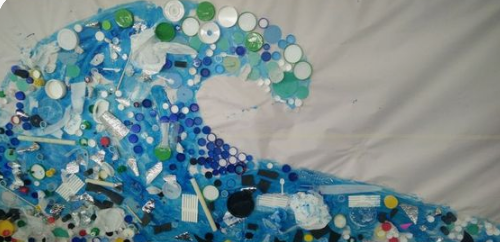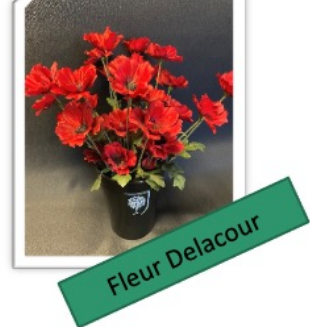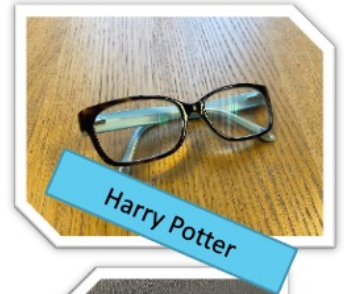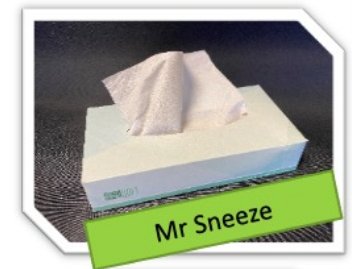Year 4 English Home Learning 01.03.2021 - 05.03.2021
Good morning Year 4 and welcome back to what will be our final week of remote learning. I can’t tell you how happy I am to be able to have you all back in school next week and I am looking forward to hearing your voices and seeing your smiles again.
On Thursday this week, it is World Book Day. Our whole day will be dedicated to celebrating reading and our love of books. Together, with the rest of the John Taylor Multi-Academy Trust (JTMAT), we will be taking part in shared activities, ideas and competitions. We will be sharing pictures of activities completed both in school and at home. Please visit the JTMAT World Book Day website. Click here to access. Be sure to send photographs of your work to your teacher so that we can share on the JTMAT website and enter the competition! Send all pictures and work to your teacher’s email address in the usual way.
On the JTMAT World Book Day website, you will be able to see staff from our school and other schools in our MAT, sharing their favourite books with you. You are able to access your World Book Day voucher here too, just click on the image below.
** You will need to collect some recyclable materials for World Book Day this week e.g. plastic bottles, bottle tops, cardboard tubes etc.**
Monday 1st March:
Spelling - Our spelling focus this week will be the suffix ous. When we add ous to the root word, it changes it from a noun to an adjective - meaning full of. For example, adventure becomes adventurous.
Like all suffixes, there are some rules that we need to follow when adding ous. These are:
f the word ends in e we take it off and add ous - adventure becomes adventurous
If the word ends in a consonant followed by a y then we change the y to an i and then add ous - victory becomes victorious
If the word ends in a vowel followed by a y then we leave the y and just add ous - joy become joyous.
If the word ends in our we change it to or before adding ous - humour becomes humorous.
If the word ends in ge we leave the e on and add ous - courage becomes courageous.
Some words have no obvious root word - enormous.
If there is an ee sound at the end of the word it is usually spelt i - serious.
If a words ends any other way, we just add ous.
I have included a video to explain these rules in more detail.
For your activity this morning, I would like you to add the suffix ous onto the these words, remembering to refer back to the rules that you need to follow.
poison vary mountain wonder glamour outrage mystery fame danger
Warm up - Can you edit these sentences using the correct punctuation.
the child sat down at the table
it is cold outside shouted the boy.
After lunch we are going to play a game.
Reading - Can I recognise some different forms of poetry? Can I perform a poem aloud using volume, intonation and actions?
Our focus for this week is going to be poetry.
What is poetry? Poetry is language that is written, following very specific patterns, rhythms, structures and/or rhymes, to express ideas and emotions. There are many different types of poetry, however, this week we will be focusing on 3 specific types - Haiku, free verse and acrostic. I have included links to videos which explain each of these types of poems. For the Haiku video, you can stop the video at 2 minutes.
Today I would like you to select one of the following poems, practise and perform it. Here is a video discussing different ways in which your poem can be performed - How to perform poetry. It would be great if you could send videos of your finished performances. I look forward to watching them.
Acrostic : Haiku: Free Verse:
Plants Communication The Beach
Tuesday 2nd March:
Spelling - I have written down some words that end in the ous suffix three times. However, you will notice that not all of them are spelt correctly. I would like you to read the words and circle/write down the correct spelling of each word. Remember to think about the rules you need to follow. You can refer back to yesterday’s videos if required.
Can you find the correct spelling for each of these words?
Warm up - Here are 3 basic sentences. I would like you to improve these by including an expanded noun phrase. Remember, an expanded noun phrase is two adjectives that come before a noun and separated by a comma.
They were eating ice-cream. The girl sat on the chair. The sun was in the sky.
Reading - Can I summarise a poem?
Today, our reading focus will return back to summarising. We will be sharing a poem together and summarising it in our own words. Summarising a poem is the same as summarising a story. We retell the story or poem in our own words focusing on the key events. I have included the video from last term to remind you about what summarising is.
I would like you to summarise the poem The Owl and the Pussy Cat. This type of poem is called a narrative poem and these tell a story. There is no structure or rhythm to these poems.
I would like you to read through the poem, I have also included a video of the poem being read for you to listen to alongside, and summarise the poem. Try to keep your summary short and to the point. It does not need lots of description.
Wednesday 3rd March:
Spelling - Today’s spelling lesson will focus on applying the suffix ous into our writing by completing missing words in sentences. The following sentences all have a word missing from them that ends in the ous suffix. I have included the missing words underneath, however, I have only included the root word. You will need to change the word in order to add ous onto the end.
The boy was ______________ as he crept through the castle.
There were ___________ flavours of ice-cream on sale in the shop.
The witch was ____________ when the cat knocked over the cauldron.
“I think you look very ___________,” replied the girl.
Inside the enclosure was a _____________ snake.
The King’s Knight was _____________ in battle.
glamour nerve courage vary poison fury
Grammar - Can I use a or an correctly when indicating a noun?
Today we will be learning about the determiners a and an. A determiner is a word that introduces a noun.
A or an are used when we are referring to a singular noun, for example a lollipop or an apple.
As you can see from the two examples, I have used the words a and an. We use a when the following noun begins with a consonant sound and an when it begins with a vowel sound. Remember that in some words such as unicycle, it begins with a vowel u but it makes the sound y.
Can you complete the following activities:
Thursday 4th March: World Book Day.
As you are aware, today we will be celebrating World Book Day within school, at home and as part of the JTMAT. We will be completing a range of activities throughout the day, which means there will be no Maths or Topic home learning.
The Fantastic First Fifty.
Over on the JTMAT Loves Reading website, teachers from across the different schools have been sharing books that they enjoy or recommend by reading the first few pages. For your first activity today, we are going to be thinking about story openings and what is their purpose. A story opening is supposed to ‘hook’ the reader in and make them want to continue reading on.
I would like you to choose your favourite book and read the first fifty words. I would then like you to answer these questions:
Does the author use any description in those first fifty words?
Are there any questions asked that you want to find the answers to?
Is there a particular sentence that made you want to carry on reading?
Below I have shared the first fifty words of my book recommendation ‘The Danger Gang’ by Tom Fletcher. What did you think of the book? I would like you record your answer using either of these two sentence starters depending on your thoughts.
I enjoyed this because ___________
I did not enjoy this because ______________
Now I would like you to write the first 50 words of your own story opening. Remember it needs to be engaging so think about the language you use. Once they are completed, please email them to me as there will be prizes given out in school as well as within the MAT for the best entries. I look forward to reading them.
The Loo Roll Challenge:
For your next activity we would like you to use a cardboard tube (toilet roll, kitchen roll or even a wrapping paper tube) and turn it into a book character. You can use pencils, pens, cardboard, paper, paint or glue but your tube must stay in its original shape! Once it is complete, send in a photo as once again there will be prizes for some entries. I have included some pictures of to help give you some ideas.
Apart but Together:
Our third activity today is going to be looking at the impact that plastic is having on our environment, in particular the seas and oceans. I have included a video of a story called ‘Duffy’s Lucky Escape’ that I would like you to watch. Once you have watched this, I would like you to think about how plastic pollution impacted on Duffy.
I would now like you to complete one of the following two activities:
1) Create a piece of art using recycled materials. I would like it to link to the ocean but how and what you choose to create is up to you.
2) Design a poster to help people understand the dangers our oceans face due to plastic pollution.
Once you have completed them please email me photos as JTMAT are putting entries together to create a book called ‘Apart but Together.’
I have included some examples to help get you started.
Guess Who:
Your final activity of they day is to find an object in your home that you would associate with a book character. Take a photograph and email it in to me. We will then have a discussion with the children in class to see if we can guess which character you are trying to represent. I have included some examples below.
Friday 5th March:
Spelling - Today we will finish the application of the suffix ous. I have included a list of 6 root words. I would like you to add the ous suffix onto the end and then use them in sentences, one sentence for each word (some may already have the ous ending). Remember to follow the rules when adding the suffix.
enormous danger adventure vary fame serious
Warm up - Can you unscramble these sentences so that they make sense?
1. next I do What should?
2. homework done Lisa her hadn’t.
3. running dog was The.
4. the mum Tony shops went and his to.
Writing - Can I write a poem on a particular theme?
Yesterday, you listened to the book ‘Duffy’s Lucky Escape’ which was all about plastic pollution and its effects on our seas and oceans. Today I would like you to write a poem on this theme. You can choose any of the three forms of poetry that we have looked at this week, Haiku, free verse or acrostic, and I have included the links to the videos to remind you of each form. Remember, we use poetry to express our feelings and emotions so think about the language that you use within it. There are also some other features that you may wish to include:
Alliteration - When words within a sentence start with the same sound e.g. Sammy the slippery snake came sliding down.
Rhyme - Where the final word in two lines of a poem sound the same e.g. I lay in the bath I walked down the path.
Rhythm - The beat or pace that we read a line in a poem.
Simile - When we use like or as to compare one object/person with something else e.g. The girl was as brave as a lion or The snowflake sparkled like a diamond.
How you choose to present your poem is up to you. You could use the computer, use coloured pens or paper even write your poem inside the shape of a sea creature. The choices are endless. Remember to be creative and I look forward to reading them.


